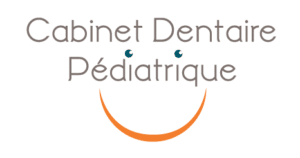Behind this scientific term lies a simple and painless surgical procedure. The frenotomy, sometimes called frenectomy or freinectomy, consists in cutting one of the brakes located in the mouth.
This operation is often recommended when the presence of a restrictive lip or tongue frenulum causes discomfort when eating or moving the mouth.
In this article, we present the main reasons leading to a frenotomy as well as the two most common cases.
Why perform a frenotomy?
A frenotomy is performed by a dentist or pedodontist only as a last resort. Brakes are small fibrous tissues that connect two parts of the mouth. When they are too short, they can cause difficulties in moving the lips and tongue.
Other symptoms such as difficulties with eating, swallowing and pronunciation are also very common in infants and babies.
Before performing a frenotomy, it is necessary to consult an osteopath, a physiotherapist or a speech therapist depending on the problems identified.
The practice of some re-education exercises in the mouth, massages to relax the muscles or even some speech therapy sessions can be enough to correct the problem.
Sometimes the tongue or lip frenulum can stretch enough to no longer cause these problems. In other cases, the tongue finds a new position and the patient is no longer bothered.
In the event that these sessions are not sufficient to resolve the complications caused by a too short brake, a frenotomy is required.
The dentist, or pedodontist in the case of children, then cuts the restrictive brake with a soft tissue laser.
Since the area is anesthetized beforehand, the operation is completely painless. In addition, the laser frenotomy technique does not cause any bleeding and promotes rapid healing.
The discomfort felt by the patient due to a short mouth brake disappears quickly after the procedure.
Lingual frenotomy
Tongue frenotomy is the most common procedure, especially in babies and young children. It consists in cutting the brake that connects the underside of the tongue to the floor of the mouth.
When the tongue frenulum is too short, a baby will have difficulty stretching his tongue out of his mouth. This anomaly prevents him from sucking properly. In the medium and long term, a restrictive lingual frenulum can cause the baby :
- Difficulty eating
- Fatigue due to the extra effort it must make to feed itself
- Restless nights
- Digestive problems.
When this anomaly is not diagnosed in infants, the child may develop difficulties in pronouncing certain sounds as he or she grows up.
Not being able to position his tongue correctly, some movements are complicated to perform.
As the child grows, a tongue-tie that is too short can also affect the child's dental growth.
In these cases, a lingual frenotomy is recommended, followed by a few sessions with a speech therapist or physical therapist to help the child reposition his or her tongue correctly.
Labial frenotomy
Labial frenotomy usually involves the upper lip frenulum. During the procedure, the practitioner cuts the tissue that connects the upper lip to the gum.
This operation is usually required, because a restrictive lip brake leads to impaired lip mobility. Indirectly, eating, smiling, dental growth and pronunciation can be affected.
A labial frenotomy is more often performed on children who are a little older. Indeed, it is sometimes interesting to wait until after the appearance of permanent teeth and orthodontic correction to intervene.
Again, after the procedure it is advisable to consult a physiotherapist or speech therapist depending on the child's needs.
Do you suspect that your child has a restrictive mouth brake? Do not hesitate to make an appointment at Dr. Adriana Agachi's office for an examination. A pedodontist in Paris, she will perform a frenotomy if required.


